Bronze-Winged Pionus: Bird Species Profile
Updated on 04/26/24
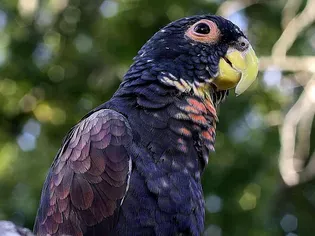
Unveiling the Enchanting Bronze-Winged Pionus: A Bird Species Profile
Introduction:
Prepare to be captivated by the enigmatic Bronze-Winged Pionus, a parrot species that exudes beauty, intelligence, and a delightful personality. Embark on a comprehensive journey into the world of this remarkable avian, discovering its captivating traits, fascinating habits, and endearing qualities.
Physical Attributes:
The Bronze-Winged Pionus is a medium-sized parrot with an average length of 26-30 cm. Its striking plumage is predominantly olive-green, with darker green feathers adorning its wings and tail. The eponymous bronze-colored feathers, found on the lesser wing coverts, add a touch of radiance.
Geographical Distribution:
Native to the humid forests of South America, the Bronze-Winged Pionus can be found in a range spanning from eastern Venezuela to southern Brazil, with isolated populations in Bolivia and Paraguay.
Social Behavior:
In the wild, Bronze-Winged Pionuses form small, family-oriented flocks. They exhibit strong social bonds, often engaging in mutual grooming and cooperative foraging.
Feeding Habits:
Bronze-Winged Pionuses are primarily frugivores, subsisting on a wide variety of fruits, seeds, nuts, and berries. They are also known to consume flowers, nectar, and vegetable matter.
Examples of Feeding Habits:
* In the Amazon rainforest, Bronze-Winged Pionuses have been observed feeding on the fruits of palms, such as the Astrocaryum species.
* In cerrado habitats, they are known to consume the fruits of the pequi tree (Caryocar brasiliense).
* During the flowering season, they may supplement their diet with the nectar and pollen of various flowering plants.
Reproduction:
Bronze-Winged Pionuses reach sexual maturity at around 4-5 years of age. They typically nest in tree cavities, where the female lays 2-4 eggs. Both parents participate in incubating the eggs and raising the chicks.
Examples of Reproduction:
* The incubation period for Bronze-Winged Pionus eggs is approximately 26-28 days.
* The chicks are altricial, meaning they are born helpless and require extensive parental care.
* The young birds remain in the nest for around 50-60 days before fledging.
Conservation Status:
The Bronze-Winged Pionus is classified as Vulnerable by the International Union for Conservation of Nature (IUCN). Its populations have declined due to habitat loss, illegal pet trade, and deforestation.
Avian Intelligence:
Bronze-Winged Pionuses are highly intelligent parrots, known for their exceptional problem-solving abilities. They have been shown to exhibit complex cognitive skills and advanced memory capabilities.
Examples of Avian Intelligence:
* One study found that Bronze-Winged Pionuses can recognize individual human faces and associate them with positive or negative experiences.
* Another study demonstrated that they can learn to distinguish between different colors and shapes, suggesting a high level of cognitive flexibility.
Personality Traits:
The Bronze-Winged Pionus is generally known for its calm and affectionate nature. They are curious and playful, and they enjoy interacting with their human companions.
Ideal Pet Characteristics:
* Makes a suitable companion for experienced bird owners
* Requires a spacious enclosure with ample enrichment activities
* Benefits from daily socialization and interaction
* Has a lifespan of up to 30-35 years in captivity
Conclusion:
The Bronze-Winged Pionus is an extraordinary parrot species that captivates with its striking appearance, fascinating behavior, and endearing personality. Its intelligence, social nature, and vulnerability make it a captivating subject of study and a rewarding companion. By understanding and protecting this remarkable bird, we can ensure its continued existence for generations to come.
Explore More Pets
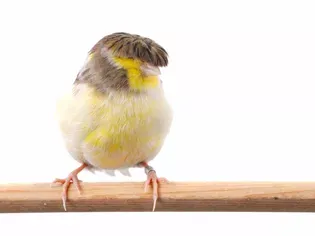
Small Bird Breeds
Gloster Canary: Bird Species Profile
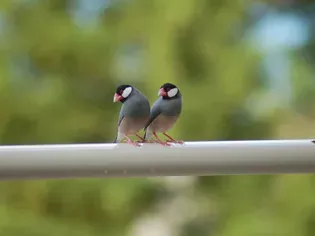
Small Bird Breeds
Java Finch: Bird Species Profile
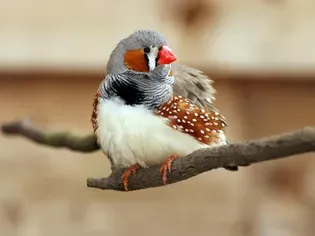
Small Bird Breeds
Zebra Finch (Chestnut-Eared Finch): Bird Species Profile
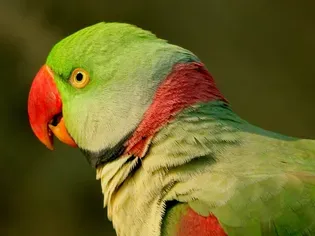
Small Bird Breeds
Alexandrine Parakeet: Species Characteristics & Care
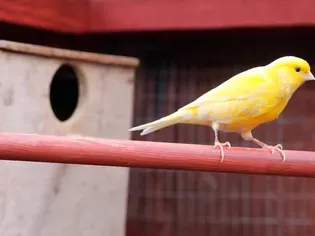
Small Bird Breeds
Canary: Bird Species Profile
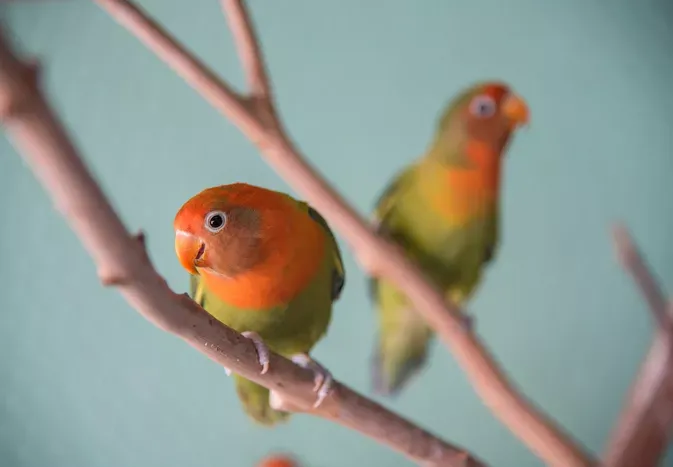
Small Bird Breeds
Lovebird (Pocket Parrot) Species Profile
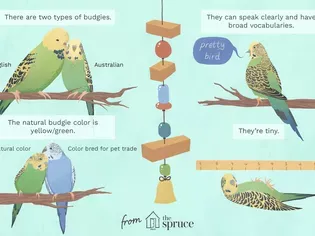
Small Bird Breeds
A Guide to Pet Budgie Birds
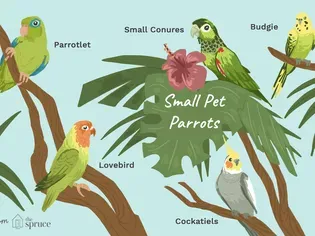
Small Bird Breeds
Types of Small Parrots